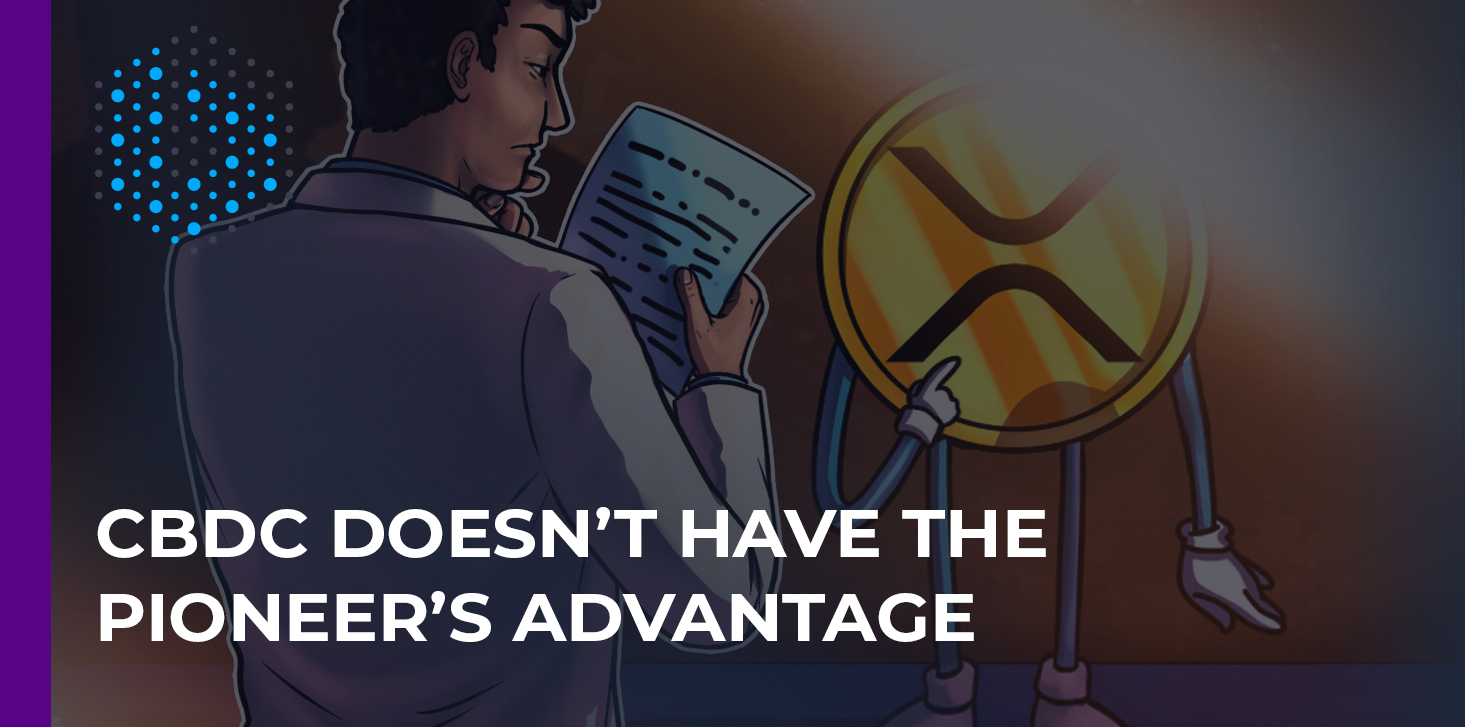Slow and steady win in the CBDC race: why the US doesn’t care about China’s speed
China appears to be on the verge of issuing its digital yuan, while the digital us dollar is still under investigation. Or maybe the race is not necessary, and it does not matter who will be the first?
CBDC doesn’t have the pioneer`s advantage
Central banks around the world are competing to be the first to issue their digital currencies as the global economy undergoes changes due to the challenges of the COVID-19 pandemic.
CBDCS are a digital form of national paper money (a currency backed by trust or faith in the regulatory government). Thus, it is directly controlled by the country’s Central Bank and supported by the national credit and state authorities.
Despite the fact that CBDC is influenced by decentralized cryptocurrencies like Bitcoin, this is more of a pre-emptive reaction than acceptance of the crypt, and the Central Bank sees it more as a threat to fight.
According to reports, China has been leading the way, aggressively piloting its own DCEP (digital yuan), while the United States has been slow to get started, and the Federal reserve is still in the preliminary research stage-evaluating the positives and negatives of implementing CBDC. .
But there are several reasons why the States are likely to still come out on top in the race for a state-backed digital sovereign currency.
Being first in the market usually offers significant advantages, especially in free markets. Being the first is often a huge step towards brand dominance, and this can be seen with cryptocurrency as well. Despite the fact that many technically advanced blockchains have appeared since the launch of the Bitcoin network, Bitok still benefits from being a trailblazer, and its reputation and brand are second to none in the crypto sphere.
CBDC development in the United States may even benefit if it is launched last. Why not let other Central banks fix the mistakes first. It is also not entirely true that the global balance will change if the digital yuan is launched first, since it is important for America’s economy and fiscal policy, which allows global spending to be supported in dollars rather than in monetary format.
CBDC has hidden risks
Letting others go first is often a smart strategy. Launching a CBDC by any government can be a potential minefield, and some would prefer that competitors pave the way through it before they decide to do it themselves.
While economists are speculating about the implications of issuing a CBDC for traditional banking systems, the actual implications are unclear at this time. Many prominent economists believe that CBDCS can empower customers to continue banking operations, especially in unstable economic conditions such as the COVID-19 crisis.
In addition to the above, simply designing and maintaining a retail-focused payment system will become a political minefield and trigger a debate about freedom: people want anonymous transactions, and regulators demand traceability.
Given the full list of possible complications, it seems that the Federal reserve’s strategy of allowing other Central banks to withdraw money first may be a reasonable solution. By sitting back, they can be sure that they are better prepared for all the surprises that China may inevitably experience in its quest to be the first. After all, nothing is more instructive than to observe other people’s mistakes and draw the right conclusions.
In the race for dominance, the CBDC coming last can get all the advantages. After all, you don’t think that America will allow someone to dominate, or just “merge” the dollar?
